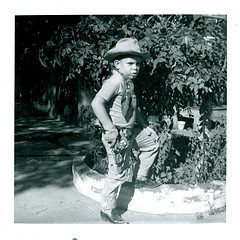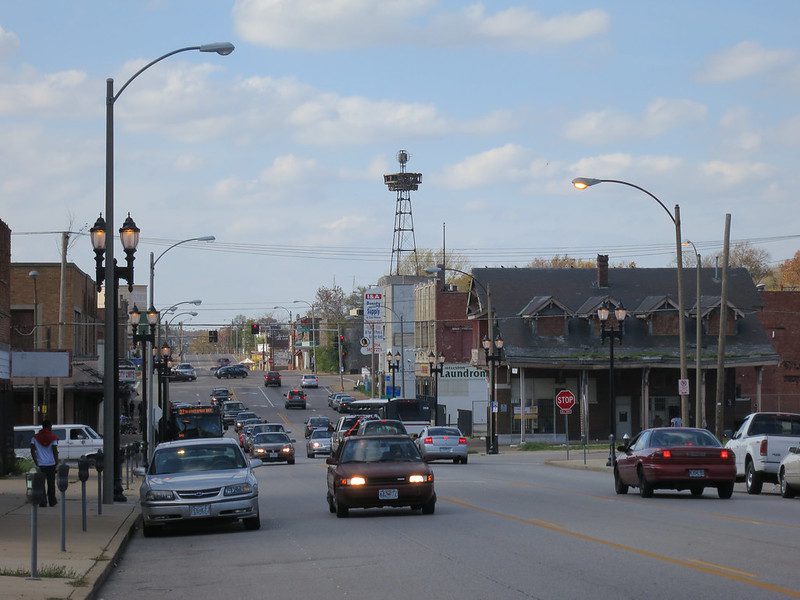When a community-based developer of affordable housing incorporates community organizing into its programmatic repertoire, there is almost always added value—for the persons housed, for residents of the area served, for the organization itself.
The reverse is less often true.
Community organizers rarely become better at cultivating collective power and agitating for social change when they leave the streets, exchanging ball caps for hard hats. Not only do they stop doing what they do best; they start doing something that takes everyone a terribly long time to do well.
Place-based activism is diminished by this one-way flow of talent. I lament it, although I would hesitate to pinch it off, since the entire field of community development is regularly replenished and reinvigorated by organizers becoming developers. Nor would I discourage grassroots activists from exploring whether a new community development corporation (CDC), community land trust, or the like might be needed.
While nonprofit start-ups should never be done lightly, there are neighborhoods and towns without any nonprofit development capacity. There are also many places where long-established community development organizations have lost touch with values and constituents to which they were once committed or have become increasingly adverse to attempting any development other than tax credit rental housing or plain vanilla homeownership.
In these cases, having people who have been building collective power turn their energies toward building housing or doing other sorts of development can be positive, despite the potential for competing with existing nonprofits for subsidies and sites that are already in short supply. Competition is not always a bad thing. Every field, including ours, needs irreverent young Turks periodically storming the gates of organizations that may have lost their edge, giving graybeards like me a run for our money.
That said, my heart sinks a little whenever I’m approached by a group that has been doing great advocacy organizing and now wants my advice about acquiring land, building houses, or doing some other sort of development.
The reality check I offer sometimes tempers their enthusiasm for plunging into the risky business of development, but I try to be encouraging. At the same time, I can’t help feeling a sense of loss. It leaves a hole in the political landscape every time another group of hard-riding cowboys (or kick-ass cowgirls) settles down after years of punching out politicians, bureaucrats, bankers, and speculators without having to worry about permits, grants, credits, loans, or donations being withheld from projects they are planning to build. With a whisper of apology to Willie Nelson, a silly ditty plays silently in my head:
Mamas don’t let your cowboys grow up to be builders
Don’t let em pluck spreadsheets and beg for old bucks
Make em play guitars, stage protests, and such
Okay, my feelings are definitely confused. If nonprofit developers become more accountable to the people and places they serve when they begin acting more like organizers—listening, engaging, recruiting, educating, advocating—perhaps community organizers become more strategic and effective when they begin casting their campaigns and framing their demands with an eye toward supporting development they plan to do.
I also appreciate the irony of cautioning organizers against becoming developers when so many of today’s most effective community development organizations were founded by people who started out as community organizers. These people didn’t suddenly set aside what they learned doing street-level organizing when they began staffing or governing organizations doing physical development.
That is no less true for the current generation of grassroots activists who are going to work for community-based developers, seeking new challenges and, perhaps, better pay. They bring with them a respect for process, a commitment to inclusion, and a passion for justice from their days doing community organizing. These virtues don’t instantly evaporate when they walk through the door of a new employer.
There is no doubt in my mind that community development organizations are made better by organizers becoming developers. My worry is that community organizing is made worse, which is why that cowboy ditty keeps playing in my head.
Very few community organizers who go to work for community-based developers continue to ply their trade after they are hired. That is because fewer nonprofit developers are actively engaged in community organizing. I don’t mean to suggest that Alinsky-inspired militancy is the only way to engage or to empower a place-based community. There are many different styles of organizing.
But much of what passes for community organizing these days among nonprofits doing community development involves raising funds, marketing homes, or managing public relations instead of helping residents develop the skills and power to advocate for policies and resources benefiting their communities.
The situation is hardly better outdoors. Notwithstanding the flare-up of the Occupy movement, the periodic canvassing of public interest research groups, and the persistence of place-based organizers affiliated with groups like Right to the City, there are fewer cities where organizing on behalf of lower-income communities and communities of color is an enduring feature of the political landscape.
Organizers taking jobs with community developers is not the primary cause, of course. Many other factors are at work. But the ranks of community organizers are thinned whenever experienced people who have cut their teeth in the streets are enticed away.
Do I want community development organizations to stop hiring organizers? Not at all. I want more of the organizers who are hired to be allowed to do the kinds of work that community organizers have always done. And I would like to see more of the organizations that are engaged in place-based development supporting citywide campaigns that put organizers on the street, develop grassroots leadership, and advocate for policies promoting equitable development.
On the other side, I would like to see organizers think twice before becoming developers themselves. I applaud their desire to revitalize an underserved area, to represent a neglected population, or to pioneer an innovation eschewed by older CDCs.
Before exchanging what they know for what they must learn, however, I would say to them: Keep doing what you do best. Act like an organizer. If your neighborhood is underserved, persuade a place-based developer from an adjoining neighborhood to expand its service area. If your local CDC is neglectful or unaccountable, give it a shake. If you find yourself in possession of lands or buildings because of a successful campaign, find a nonprofit ally to develop them or to manage them on your behalf. Bring pressure to bear or put a partnership in place that accomplishes your development goals without abandoning the organizing roles your constituents still need you to play.
Community development organizations are an important part of that constituency. They need people out in the streets doing what they cannot: advocating for political change; challenging the status quo; occasionally biting the hands that feed the affordable housing and essential services that nonprofits provide. They need babies that grow up to be organizers, not organizers that trade in their spurs to become developers. We’ve already got plenty of the latter.
What we lack is a critical mass of grassroots activists who are doing the harder work of winning popular support for policies that keep all those community-based developers from starving.
(Photo by Flickr user anyjazz65, CC BY.)






Thanks for such a wake up call. I’m currently part of a grassroots neighborhood group advocating for the development of an under-served and distressed community in a low income neighborhood in Philadelphia. I often feel; “caught in web” of my beliefs and the formulaic revitalization i have witnessed over the years. This article tempers my idealism, but I will be more mindful of the steps i take as an activist……
YES! There is a healthy tension between the work of community development and community organizing. A tension that should be nurtured and supported by funders as well. I question as well, the perceived line that advocacy/organizing becomes community development. John’s posting as part of a growing dialogue as public funds continue to be cut or restricted for housing and community development while the demands for housing justice and equitable community transformation resonate across our neighborhoods. Several recent postings have explore themes of choice and place, mobility and stability- all challenging areas for race, class, organizing and development for all us in the field, in the movement for social and economic justice. La Lucha Continua.
Well said and thank you, John! We talk a lot about needing a continuum of housing choices for low-income people, but I think we also need a continuum of housing providers and advocates to ensure that we’re creating just communities. I’m excited that my organization, the National CLT Network, is immersing itself more and more into these challenging questions. We partnered with Right to the City earlier this year to provide a start-up CLT webinar series. This fall, we are launching new research on CDCs, CLTs, and organizing as well as a support system for emerging organizations. I’m eager to read more of your thoughts, so I hope you will keep writing on this topic! And your twist on a country classic may just become a top 10 hit of the year (if we Rooflines readers have anything to say about it).
John,
Beautifully said! I think part of the challenge is that we do not financially value organizers as a profession the way that we should, so it makes it very difficult for some people to sustain themselves in the role long term. And, if you are a true organizer, you will be out there offending some people – including funders – which makes it again difficult to sustain your livelihood over the years. Not saying this is true for all organizers, but definitely presents a conundrum for some! Thank you for highlighting this tension.
Natallie
Don’t develop?
Don’t improve?
Don’t create?
Huh?
Heaven forbid that the most active, engaged, members of a community stop demanding and actually start producing!
Heaven forbid that they should become part of the solution instead of steadfastly being part of the problem!
Heaven forbid that anyone take some initiative and make a neighborhood’s situation better rather than declaring all is lost unless free apartments, land, money pour endlessly in from society, from the government, from The Man!
I am reminded of the chorus of complaints about how New York City has lost its “character” because now its economy is thriving and people have jobs and the streets are safe, instead of it being a terrifying economically depressed hellhole infested with drug dealers and muggers.
It was so much more cool and “edgy” when we lived in fear for our lives and there was a lot less opportunity, wasn’t it?
Mama, don’t let your mean streets grow up to be clean streets.
Don’t let us earn paychecks and be safe at night.
Make us panhandle and protest and fight.
Great insight John and one that we are following in Baltimore. The challenge, however, is finding community developers who share the values of the organizing campaign. Maybe a future blog could provide some insight as to the pros and cons of the speculative housing market’s ability to reduce poverty.
I truly appreciate this article.Much thanks again. Will read on…
As a community organizer I can tell you that we would happily stay in the streets IF there was financial support for the work that we do. So many grassroots and community advocacy groups can not find any financial support for their advocacy.
I was told by the well established community development organizations that there were “tree shakers” and “jelly makers” but what was clear to me is that communities cannot prosper without both. The resources that we ‘tree shakers” made available overtime is often used to by-pass or undermine our activism but without our shaking the tree there is no fruit to nourish our neighborhoods.
If you don’t want us becoming jelly makers share the Jelly. Support our advocacy. Don’t allow funders to divide us. Let’s work together so that we all have plenty and our communities grow and prosper.
Mamas, Don’t Let Your Organizers Grow Up to Be Developers: I started doing community organizing a long time ago with a number of people who got off of the organizing train to become housing developers, urban development specialists, politicians, political consultants, and government regulators and bureaucrats.
Organizing is a craft. Organizing, as such, has always been undervalued and disrespected.
After 25+ years in organizing I can say this: when you start caring more about the issue than the people who are affected by the issue, you are on the road to becoming a policy wonk.